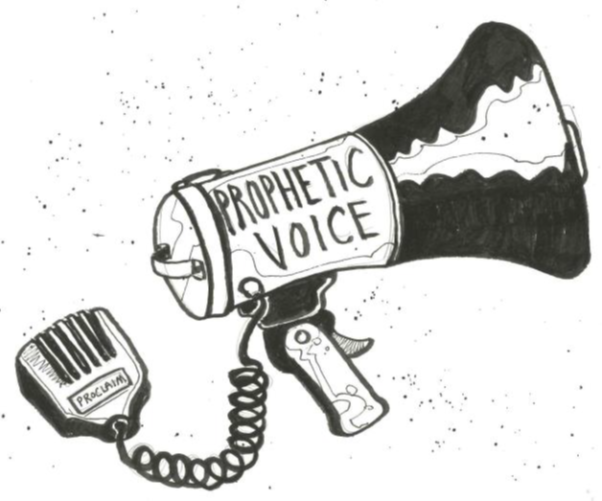Pacific Conference of Churches calls for urgent climate action 20 years after its first Declaration from Otin Taai.
Tuakoi ‘Lei Declaration [1]
A statement and declaration from the Pacific Conference of Churches’ members and partners at the Otin Taai +20 Conference – 6-9 May 2024, Pacific Islands Forum Secretariat, Suva, Fiji.
“Which of these three do you think was a neighbour to the man who fell into the hands of robbers?” The expert in the law replied, “The one who had mercy on him.” Jesus told him, “Go and do likewise.”
(Luke 10: 36- 37 NIV)
What We See
Twenty years after the historical Otin Taai Declaration [2] by Pacific Churches, members of the Pasifika Household of God[3] gathered to take stock of the impacts of climate change in the two decades since the prophetic voice of the Pacific was raised to the world.
The stories we have heard this week tell us that the world has not listened to our cries. Our stories are the lived realities of the science of climate change and the result of a lack of commitment and action to reduce carbon emissions, phase out fossil fuels and change from unsustainable lifestyles and development models.
In the islands of Otin Taai[4], Kiribati, geographically isolated, severe sea-level rise and coastal erosion have deeply impacted the livelihoods and culture of its people. Bikeman Island is now completely submerged while other islands are becoming uninhabitable and forcing communities to relocate, disrupting traditional lifestyles and knowledge systems. Drastic changes in weather patterns have led to significant droughts that affect water supply and agriculture. Last year, breadfruit trees, a dietary staple, died off. This year freshwater supplies have become saline.
In the Marshall Islands, Jaluit Atoll has experienced flooding in houses and school campuses due to king tides and a severe drought has been complicating their already critical water crisis for the past months. Kili Atoll, experiences flooding from rising groundwater. The Runit Dome in Enewatak Atoll, which contains radioactive waste from US nuclear testing, is beginning to crack and corrode due to rising sea levels, posing a severe threat not just locally but potentially across the Pacific.
In the larger islands of Melanesia environmental degradation continues despite the increasing impacts of climate change. While churches and civil society work to empower indigenous communities on climate change and environmental justice, corruption and unjust political systems ignore processes such as free, prior and informed consent of customary landowners, which also leads to land grabs and internal displacement. Perpetrating states continue to seek to silence Pacific countries on these issues through offers of aid and development assistance.
Across our islands, an unhealthy focus on economic development and profit for a few, instead of the wellbeing of many, has encouraged extractive industries which lead to further environmental crises and exacerbate the impacts of climate change.
We visited the Fijian coastal community of Togoru, where the ocean encroaches into the land at a rate of approximately 1 metre a year. We listened to how the long-standing cries of people of Togoru, to preserve their livelihoods and generational home from the encroaching sea, have gone virtually ignored. We knelt together in prayer on the sands of Togoru settlement and lamented the exploitative and extractive systems of neo-colonialism and enduring colonialism that continue to exacerbate the plight of many of our Pacific brothers and sisters experiencing climate change.
We note with great urgency, the intensifying frequency of extreme weather patterns and slow onset events caused by climate change within each of our communities. We are no longer the “canary in the coal mine” and time is running out for all of us. Our cry for justice is not only for ourselves but for God’s precious biodiversity, of which we are a part.
A global ecological conversion is long overdue in this time of ecocide.[5]
Our Discernment: Towards an Oceanian Tuākoi ‘Lei – Neighbourly Love, Compassion and Hope in the Context of Climate Change
At the start of our gathering, son of the Pacific and Honorable Minister of Home Affairs, Environment and Climate Change for Tuvalu, Dr. Maina Talia used the parable of the good Samaritan and the question “who is my neighbour?” – or in Tuvaluan, my tuākoi – to highlight the moral and ethical dimensions of climate change, stressing the need for systemic change and global cooperation.
He stated, “We as churches in the Pacific must not fear speaking truth to power, we must not be held hostages on issues that we did not cause. We should seek to keep industrialized countries, our global neighbours – for neighbours are now nearby and far away in this interconnected planet – we should seek to keep them accountable for their actions.”
We – 29 representatives of the member churches and national councils of churches, including men, women and youth, along with over 30 partners and resource persons from civil society and faith-based organizations throughout the region and globe, challenge ourselves and the world to be a good neighbour…
A good neighbour to one another;
A good neighbour within creation;
A good neighbour to communities experiencing and at serious risk of the impacts of climate change;
A good neighbour to those who were here, are here now and are yet to come;
A good neighbour to countries whose lifestyles and economic models are based on the fallacy of unlimited growth and whose denial and culpability are taking our people and planet beyond the red line of 1.5 degrees;
A good neighbour to those who stand up and fight injustice.
God has called creation out of the chaos of ocean covered earth, yet the actions of fossil fueled greed, selfishness and apathy, manifested as extractive industries and economic globalization are driving us back to chaos as we experience the ocean rising to reclaim the earth, our common home.
We call the world to embody neighbourly love, compassion and hope, which are needed more than ever to turn the tide for climate and ecological justice.
Our Commitment as Pacific Churches and Our Call to Action
Our Pasifika Household of God is a sacred and eco-communal space, where theology, indigenous knowledge, science, the cry of our people and the groaning of creation are woven together to create a mat on which all can sit and no one is left behind, as we seek, not only survival but hope for flourishing.
We are communities who are both vulnerable and resilient and seek to articulate this in the language of God who calls us to care for the vulnerable and whose grace empowers our resilience.
On Rethinking and reshaping our theology on climate change and mainstreaming climate change education –
I. We reaffirm theological education on climate change, calling for:
A. Reconnecting the Old Testament understanding of Creation to the Gospel.
B. Equipping ordained ministers and lay leaders with eco-theology to fully understand the relationship between God, nature and people;
C. Incorporating climate change and indigenous, local and traditional climate knowledge into the curriculums of all local theological schools;
D. Working to make climate theology curriculum available to the public at large, including in church-run primary and secondary schools, to encourage space for collaboration;
E. Including climate change education in all of our schools;
F. PCC to share best practices of local theological schools on climate change theology including disaster preparedness etc.
II. We request the South Pacific Association of Theological Schools to convene a workshop of local theological schools/colleges to engage in the development of framework and materials on climate change for schools who do not yet have such programmes or wish to update their curriculum, in partnership with the Oceania Biblical Scholars Association and the Pacific Theological College’s Institute of Climate Indigenous Knowledge.
On the importance of language to our understanding and engagement with climate change –
III. We call for the use of empowering language including:
A. Intentional usage of the terms “vulnerability” and “resilience” with mindfulness to the context in which they are used;
B. Intentional usage of the language of the church in discourse in the context of faith and climate change, including and especially when engaging with civil society organizations and governments;
C. The development of capacity for churches and church leaders to understand technical and scientific climate language through regular engagement with local, regional and international climate change campaigns and programmes;
D. The decolonization of climate change language and the use of the language that is grounded in the experiences, stories, faith and wisdom of the Pacific people.
IV. In recognition of faith and spirituality as formational in the Pacific worldview, we encourage Pacific leaders to embrace such heart language in their climate change discourse.
Acknowledging that we cannot work in silos to tackle the issue of climate change
V. We call for continuous multi-stakeholder collaboration including with CSOs, governments, interfaith and denominational networks, diaspora communities, indigenous peoples, marginalized communities, women and youth, through:
A. Establishing PCC climate change working group, made up of Pacific church representatives, to review and make recommendations to future Pacific Church Leaders Meetings and other forums;
B. Elevating demands by Pacific frontline communities to the UNFCCC and other critical multilateral forums through continuing engagement through the World Council of Churches Commission on Climate Justice and Sustainable Development, Commission of the Churches on International Affairs, Commission on Health and Healing and Central Committee;
C. Strengthening ecumenical and interreligious collaboration at all levels;
D. Ongoing engagement with regional and global civil society;
E. Using social analysis to uncover the root causes of climate change;
F. Amplifying the voice of frontline communities and empowering them to be social agents of change.
Acknowledging the importance of decolonizing theology and climate change-
VI. We call for the Reweaving of the Ecological Mat through:
A. Consideration of the impacts of development on ecological systems rather than just the economy;
B. Commitment to using the Reweaving the Ecological Mat principles and bases of well-being.
Recognizing the need to address loss and damage through pastoral care, especially the psychological, spiritual and emotional trauma resulting from climate change –
VII. We call for Pacific churches to work with partners to develop a network for trauma counselling that addresses the fear, worry, distress and damage caused by climate change and climate induced migration.
Recognizing the technological development that has taken place since 2004,
VIII. We call for continuous knowledge and skill building on innovative and new approaches to climate justice including the use of artificial intelligence, scientific advancements in agriculture, infrastructure, technology, media and communications to improve awareness, preparedness, response and collaboration on climate change issues
Recognizing the need for solidarity as tuākoi ‘lei –
A. We reaffirm the call for a just transition towards a fossil fuel free world.
B. We call on financial institutions and church financial units to divest from fossil fuel projects or the development of fossil fuels.
C. We call for an international ecocide law under the Roman statute and to make international ecocide a national crime.
D. We reaffirm our ongoing stand against deep sea mining.
E. We seek to secure community led climate financing alternatives towards practical and tangible climate related activities.
July 11, 2024





